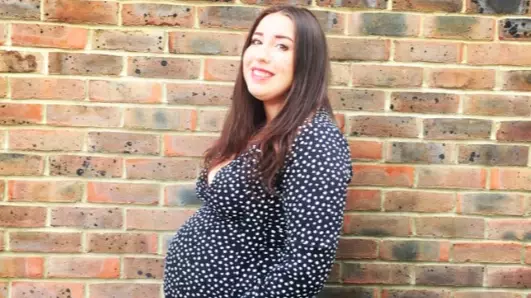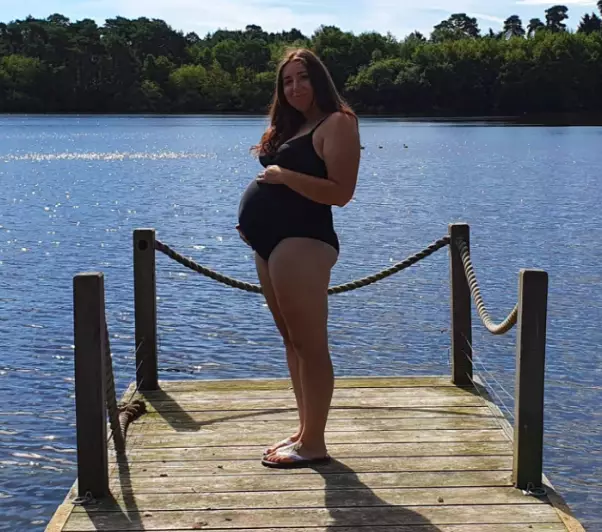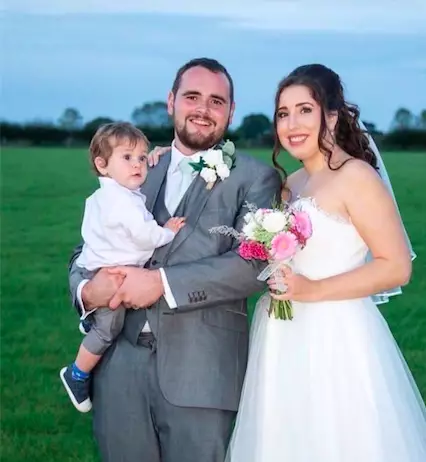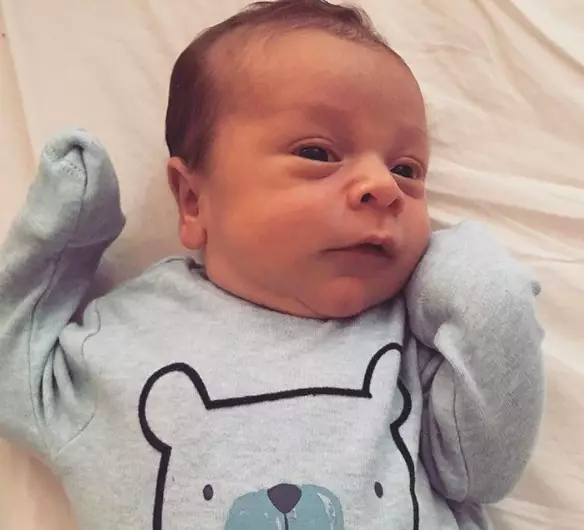
Living through a pandemic has been trying for us all. The latest rise in cases has prevented us from hanging out in groups bigger than six, there's a strict "no mingling" clause, and fines are being issued for those caught stepping out of line.
But before you start complaining about your life becoming just a little bit less fun, spare a thought for the pregnant women who have seen no let-up on Covid-19 restrictions since the pandemic first took hold.
Expectant mothers have been dealing with fear, uncertainty and mental anguish since March; and despite watching the rest of society attempt to get back to relative normality, many are still being told that going it alone on the labour ward is the only option.
Advert
To add insult to injury, maternity regulations vary from hospital to hospital, meaning it's become something of a postcode lottery when it comes to how much support mothers get from their birthing partner.
There are first-time mums who have had to go to scans on their own, only to find out their baby doesn't have a heartbeat; women who have already had traumatic births, terrified at the thought of going through their next labour without a loved one by their side; and exhausted new mums still in hospital who are only allowed their husbands with them for a limited time per day in the aftermath of giving birth.
It's not hard to see why, when it comes to the easing of Covid restrictions, many feel forgotten.

That could all be about to change though, thanks to a growing Twitter campaign named #ButNotMaternity, which has seen thousands of expectant mothers and workers in the maternity sector voice their concerns at the unrelenting restrictions.
Advert
After listening to their stories, our cancelled holidays and postponed birthday parties are beginning to feel a little less galling.
One woman who has been avidly supporting the campaign is 25-year-old expectant mum Megan Cawley, from Chichester, who is currently 33 weeks pregnant, and dealing with the stringent regulations first hand.
"The campaign is really close to my heart," she tells Tyla. "My husband wasn't allowed to attend any scan with me, which was tough.
Advert
"Seeing people complain now is definitely frustrating. Really, these are small issues compared to what women are going through on maternity at the moment".

Speaking about attending scans on her own, she says: "Even if it's your second baby, you are aware - especially with your first scan - that there's no guarantee everything's going to be fine.
"Everyone's all PPE'd up and you can't even see their faces, it's very impersonal. You're sat down and informed that if there's bad news you'll have to be told right then and there, which, straight away, is scary.
Advert
"Partners can sit in the car, but for those 10 minutes if you are told bad news and you're alone, it's obviously going to be very painful.
"[The scan] was hard enough for me, but I feel more sorry for first-time-mums having to go through that."
Megan is planning to give birth at St Richard's Hospital in West Sussex, but after a traumatic first birth three years ago, where she suffered pre-eclampsia (a condition that causes dangerously high blood pressure), underwent an episiotomy (a surgical incision of the perineum and the posterior vaginal wall), had third-degree tears and an eclampsia-triggered seizure after birth, she fears she'll likely have to be induced this time around, too, meaning potentially spending hours without her husband by her side.

That's because Covid-19 regulations at her hospital stipulate he can't enter the delivery room until she's in established labour - which is between four and six centimetres dilated.
Advert
"You don't ever get over [a birth] like that," Megan says. "It's so hard to think that I could be in a similar situation again, and this time also spend hours of the labour without him.
"It should be an exciting time, but instead there's just a lot of anxiety."
Perhaps more daunting than giving birth alone is what comes afterwards, she adds.
After giving birth to her son, Theodore, Megan was so shell-shocked from the trauma that she suffered from post-natal depression and struggled to bond with him, relying heavily on her husband for round-the-clock support.
"What concerns me is knowing he won't be able to stay overnight with me, like he did with the previous birth," she goes on. "And that - if I have to be in [hospital] for several days - they currently only allow one hour visiting time of the father, which is nothing considering he's the other parent, not a visitor.
"I know how much care I needed from him last time. I needed him there for the baby and also just for emotional support.
"Even with the midwives coming round to help you, its not the same as a partner. I keep thinking, 'what if the ward is stretched that day?'"

There's also the fact that Megan has had pre-eclampsia once, and has a one in five chance of suffering from it again.
"[My husband] has vocalised that he would be worried about leaving me afterwards, in case I have a seizure," she adds. "It is a scary thought".
But beyond fear for herself, Megan says its important we look at the mental impact that these regulations have on new fathers, too.
Using her first birth as a prime example, she says: "Imagine seeing your other half going through such a traumatic time and being told, actually you've got to leave now," she says. "It's quite damaging.
"And for a dad to only get an hour a day to bond with the baby is so tough. It's so vital that they have that key time with their child, because dads get postnatal depression, too".

What makes things all the harder is that there isn't a blanket rule for all hospitals - it varies depending on your local area's NHS trust.
"A few hospitals in the Midlands have now eased their restrictions and said that you can have a labour partner for the whole duration of labour and that they can stay the whole following day," Megan says.
"I'm very relieved for those mums, but its annoying that its not a nationwide thing, it's down to the individual NHS trust's discretion, which means some mums are getting a better chance than others."
Megan is far from alone in her frustrations; they have also been echoed by many other mums-to-be, maternity care campaigners like Pregnant Then Screwed and even celebs in similar positions.
Pregnant reality star Ashley James, who is expecting her first born in January, recently told fans she was nervous and "apprehensive" about the possibility of giving birth without her partner, while a petition calling for birthing partners to be allowed across all hospitals nationwide, for all of the birth, has now surpassed 400,000 signatures and counting.
Holly Clark, a doula at BirthBliss Academy and one of the individuals behind the But Not Maternity campaign, tells Tyla: "We are seeing an alarming amount of birth trauma related to Covid-19 and birth partner restrictions.
"Women feel they are being coerced into decisions they don't feel comfortable with. And they fear speaking up in case it affects how they are treated.
"[They] have been telling of stories where they have been left alone when being induced and [how they've had] no support in the post natal wards with their newborns.
"Women will never forget how they have been treated in childbirth, and there is evidence that women's mental health directly affects that of their baby and the rest of their family members."
Holly and others behind the campaign have also written an open letter to to Chief Medical Officer Chris Whitty, Health Secretary, Matt Hancock, and NHS England, warning that the current regulations are "not necessary, not based on scientific evidence, are disrespecting human rights".
Megan agrees, adding: "I definitely think pregnant women have been left un-noticed. Maybe people that haven't got pregnant friends and family don't realise what's going on.
"People need to realise that the things they're moaning about are really trivial in comparison".
If you want to help the But Not Maternity campaign you can support it on Twitter, write to your local MP and sign the petition above.
Topics: Pregnancy, maternity, Coronavirus, Covid-19